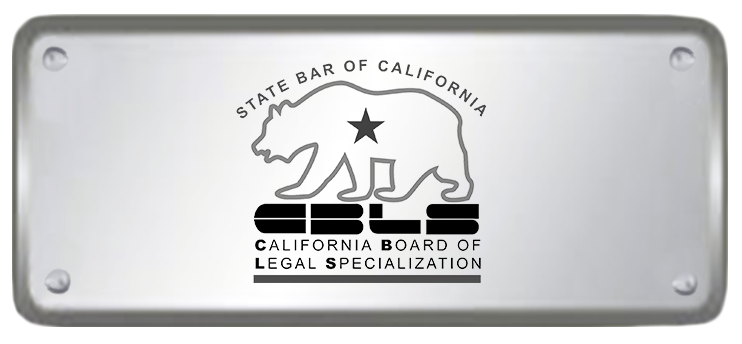PRENUPTIAL AGREEMENTS IN CALIFORNIA
A prenuptial agreement or “prenup,” also known as a premarital or antenuptial agreement, can help prevent a costly and combative divorce by defining in advance the rights and responsibilities of the spouses prior to marriage. While prenups are sometimes viewed as negative and not a form of endearment, in actuality, they are beneficial in that they encourage couples to consider and communicate about finances and other related matters in advance, which might lead to a stronger marital union and provide structure and stability in the event of divorce.
What Is a Prenup?
A prenup is a binding written agreement between two people that are planning to be married that defines a clear framework for how property, assets, debts, spousal support obligations, attorney fees, and other pertinent issues will be treated in the event of divorce. In California, prenups are valid and enforceable as long as they comply with legal requirements. Here are some of the key provisions that are typically included in a prenup:
PROPERTY:
A prenup can specify how property will be characterized and divided in the event of a divorce. This can include property that is acquired before or during the marriage, as well as property that is acquired through inheritance or gifts during the marriage.
BUSINESS INTERESTS:
If one or both parties own a business, a prenup can specify how the business ownership will be treated in the event of a divorce. This can include how the business will be valued and how the ownership interests will be divided.
DEBT ALLOCATION:
A prenup can specify which party will be responsible for paying certain debts, such as credit card debt or student loans.
SPOUSAL SUPPORT (ALIMONY):
A prenup can limit or eliminate spousal support obligations in the event of a divorce. In California, spousal support provisions included in a prenup may later be invalided by the court if they are unconscionable at the time of entering or enforcing the prenup.
CHILDREN:
A prenup cannot predetermine child custody in California, as the best interest of a child is a dynamic standard. Child support in California is based on the most current income and actual custodial timeshare as incorporated into the guideline formula, which is presumptively correct. Therefore, any agreement to set child support in advance by way of a prenup would not be enforceable.
What If You Don’t Get a Prenup?
If you do not get a prenup, then your divorce in California will proceed by operation of law, chiefly the California Family Code. While there is still the opportunity to negotiate and reach agreements once a divorce is filed, that is generally more difficult than doing so in advance. The Family Code will dictate all aspects of the divorce, including the characterization and division of property. Depending on the size of the marital estate and the amount of property, the effort and expense required to characterize and divide property can be significant and may not produce an optimal outcome for one or both of the spouses. This is particularly true where there is commingling, community monies contributed to separate property assets, and the existence of both community and separate property business interests.
What Does a Prenup Do?
A prenup is meant to prevent disputes in the future and protect the parties as they uncouple, as illustrated in the following examples:
1. LOSS OF INCOME FOR A STAY-AT-HOME-PARENT:
There might be an agreement that one party be a stay-at-home parent. In this case, that party gives up career advancement and will have a lower income upon separation. If addressed in the prenup, then the stay-at-home parent can be provided with protection and safeguards for support in the event of a divorce.
2. PROTECTING GENERATIONAL WEALTH:
Prenups are also valuable when one party is entering the marriage with generational wealth or the expectation of a significant increase in net worth after marriage. By clearly defining what property will remain separate versus community, both spouses will have a clear understanding and expectation of their financial future.
3. PROTECTING BUSINESS INTERESTS:
A business owned by a spouse prior to marriage is their separate property. However, increases in the value of the separate property business during the marriage could result in significant litigation over what is known as equitable apportionment. In this circumstance, the separate property business remains separate property, however, the community may be entitled to reimbursement for the community property efforts that contributed to its increase in value. In addition to significant litigation and discovery, an equitable apportionment analysis requires the retention of experts to analyze and present the data to the court.
4. DISSUADING LITIGATION:
Many prenups include provisions related to prevailing party attorney fees to hedge against attacks upon the prenup and to promote the final settlement of the issues. In sum, if the provisions of a prenup are challenged, then the party that prevails is entitled to payment of their reasonable attorney fees by the other party.
What Should You Know Before Signing a Prenup?
It is important to have legal advice on both sides of a prenup to ensure that there is no duress or undue influence and so that both sides understand what they are truly bargaining for in the context of the California Family Code. Additionally, whether some or all of the provisions of a prenup will be enforceable in the event of divorce may depend on whether both parties were represented by counsel.
When and How to Get a Prenup
It is a good idea to complete your prenup in a solid time frame before the marriage so that issues can be resolved, required information can be exchanged, and you can focus on your nuptials. At a minimum, each party must have the final agreement in his/her possession for a full seven calendar days before the parties may execute it. Furthermore, prenups intending to waive spousal support require the party affected to be represented by counsel.
It is important to get separate and independent counsel to prepare and/or review the marital agreement. At Antonyan Miranda, we draft, review, and litigate prenups. It is critical that you have an experienced attorney participating and supporting you through your prenuptial agreement process. Call us at 619-696-1100 to speak with one of our Concierge attorneys, or visit us at www.expertdivorcelaw.com for more information.
FOLLOW US!
PRENUPTIAL AGREEMENTS IN CALIFORNIA
A prenuptial agreement or “prenup,” also known as a premarital or antenuptial agreement, can help prevent a costly and combative divorce by defining in advance the rights and responsibilities of the spouses prior to marriage. While prenups are sometimes viewed as negative and not a form of endearment, in actuality, they are beneficial in that they encourage couples to consider and communicate about finances and other related matters in advance, which might lead to a stronger marital union and provide structure and stability in the event of divorce.
What Is a Prenup?
A prenup is a binding written agreement between two people that are planning to be married that defines a clear framework for how property, assets, debts, spousal support obligations, attorney fees, and other pertinent issues will be treated in the event of divorce. In California, prenups are valid and enforceable as long as they comply with legal requirements. Here are some of the key provisions that are typically included in a prenup:
PROPERTY:
A prenup can specify how property will be characterized and divided in the event of a divorce. This can include property that is acquired before or during the marriage, as well as property that is acquired through inheritance or gifts during the marriage.
BUSINESS INTERESTS:
If one or both parties own a business, a prenup can specify how the business ownership will be treated in the event of a divorce. This can include how the business will be valued and how the ownership interests will be divided.
DEBT ALLOCATION:
A prenup can specify which party will be responsible for paying certain debts, such as credit card debt or student loans.
SPOUSAL SUPPORT (ALIMONY):
A prenup can limit or eliminate spousal support obligations in the event of a divorce. In California, spousal support provisions included in a prenup may later be invalided by the court if they are unconscionable at the time of entering or enforcing the prenup.
CHILDREN:
A prenup cannot predetermine child custody in California, as the best interest of a child is a dynamic standard. Child support in California is based on the most current income and actual custodial timeshare as incorporated into the guideline formula, which is presumptively correct. Therefore, any agreement to set child support in advance by way of a prenup would not be enforceable.
What If You Don’t Get a Prenup?
If you do not get a prenup, then your divorce in California will proceed by operation of law, chiefly the California Family Code. While there is still the opportunity to negotiate and reach agreements once a divorce is filed, that is generally more difficult than doing so in advance. The Family Code will dictate all aspects of the divorce, including the characterization and division of property. Depending on the size of the marital estate and the amount of property, the effort and expense required to characterize and divide property can be significant and may not produce an optimal outcome for one or both of the spouses. This is particularly true where there is commingling, community monies contributed to separate property assets, and the existence of both community and separate property business interests.
What Does a Prenup Do?
A prenup is meant to prevent disputes in the future and protect the parties as they uncouple, as illustrated in the following examples:
1. LOSS OF INCOME FOR A STAY-AT-HOME PARENT:
There might be an agreement that one party be a stay-at-home parent. In this case, that party gives up career advancement and will have a lower income upon separation. If addressed in the prenup, then the stay-at-home parent can be provided with protection and safeguards for support in the event of a divorce.
2. PROTECTING GENERATIONAL WEALTH:
Prenups are also valuable when one party is entering the marriage with generational wealth or the expectation of a significant increase in net worth after marriage. By clearly defining what property will remain separate versus community, both spouses will have a clear understanding and expectation of their financial future.
3. PROTECTING BUSINESS INTERESTS:
A business owned by a spouse prior to marriage is their separate property. However, increases in the value of the separate property business during the marriage could result in significant litigation over what is known as equitable apportionment. In this circumstance, the separate property business remains separate property, however, the community may be entitled to reimbursement for the community property efforts that contributed to its increase in value. In addition to significant litigation and discovery, an equitable apportionment analysis requires the retention of experts to analyze and present the data to the court.
4. DISSUADING LITIGATION:
Many prenups include provisions related to prevailing party attorney fees to hedge against attacks upon the prenup and to promote the final settlement of the issues. In sum, if the provisions of a prenup are challenged, then the party that prevails is entitled to payment of their reasonable attorney fees by the other party.
What Should You Know Before Signing a Prenup?
It is important to have legal advice on both sides of a prenup to ensure that there is no duress or undue influence and so that both sides understand what they are truly bargaining for in the context of the California Family Code. Additionally, whether some or all of the provisions of a prenup will be enforceable in the event of divorce may depend on whether both parties were represented by counsel.
When and How to Get a Prenup
It is a good idea to complete your prenup in a solid time frame before the marriage so that issues can be resolved, required information can be exchanged, and you can focus on your nuptials. At a minimum, each party must have the final agreement in his/her possession for a full seven calendar days before the parties may execute it. Furthermore, prenups intending to waive spousal support require the party affected to be represented by counsel.
It is important to get separate and independent counsel to prepare and/or review the marital agreement. At Antonyan Miranda, we draft, review, and litigate prenups. It is critical that you have an experienced attorney participating and supporting you through your prenuptial agreement process. Call us at 619-696-1100 to speak with one of our Concierge attorneys, or visit us at www.expertdivorcelaw.com for more information.





















